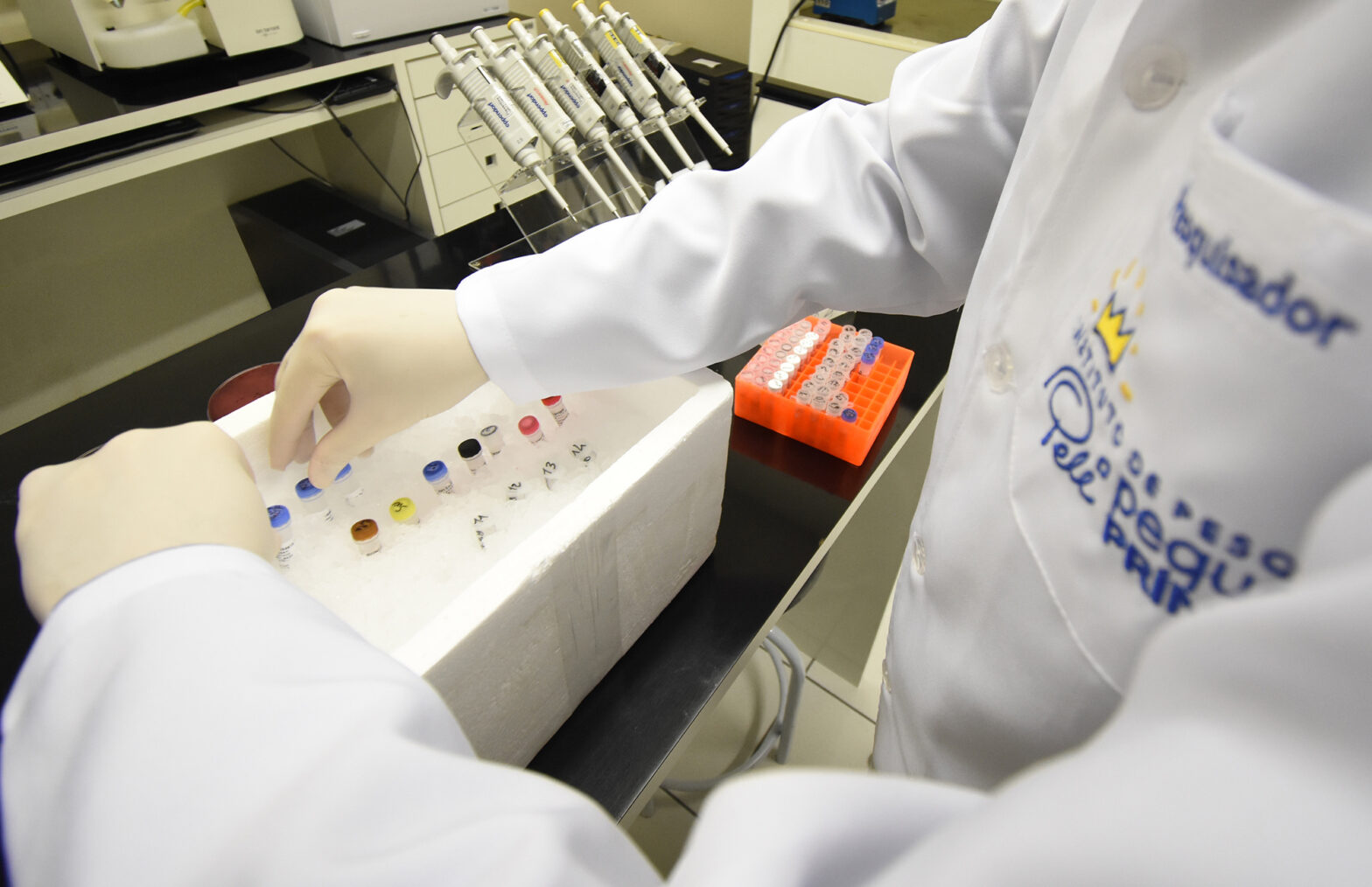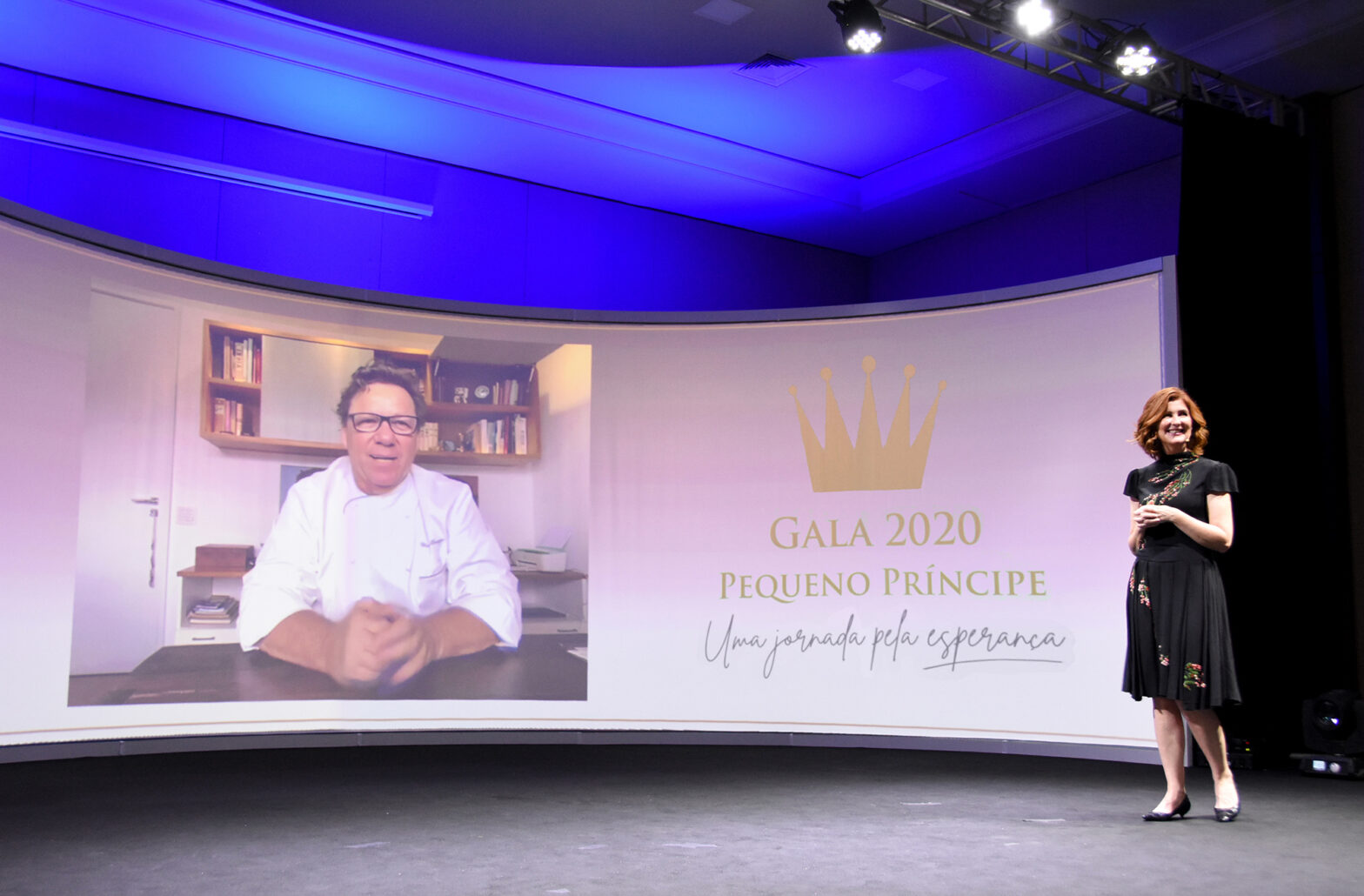The Bone Marrow Transplantation Service turns 10 years old
During this period, 303 transplants were carried out on 280 patients, consolidating the service as one of the largest in Brazil to assist children through the Public Health System – SUS
Enzo Eliseu arrived at Pequeno Príncipe Hospital in 2015 when he was only two months old, weighing less than 4,40lb. Despite his young age, the boy was already fighting a long battle for life. Born in Belém (state of Pará), he had been referred for care in a hospital in São Paulo. However, after being diagnosed with a rare disease, he was sent to Pequeno Príncipe seeking for the only treatment that could restore his health: a bone marrow transplant (BMT). “The doctors told us that there was no time to find a 100% compatible donor. So, I was the donor myself, with a 50% match,” says her mother, Marcilene Oliveira Silva. The transplant was a success and the boy, now 5 years old, was able to overcome the severe malnutrition that threatened his life, as well as the rare disease. “Enzo is here only because the Pequeno Príncipe’s team gave themselves integrally to him. They are angels in our lives,” she declares, touched.
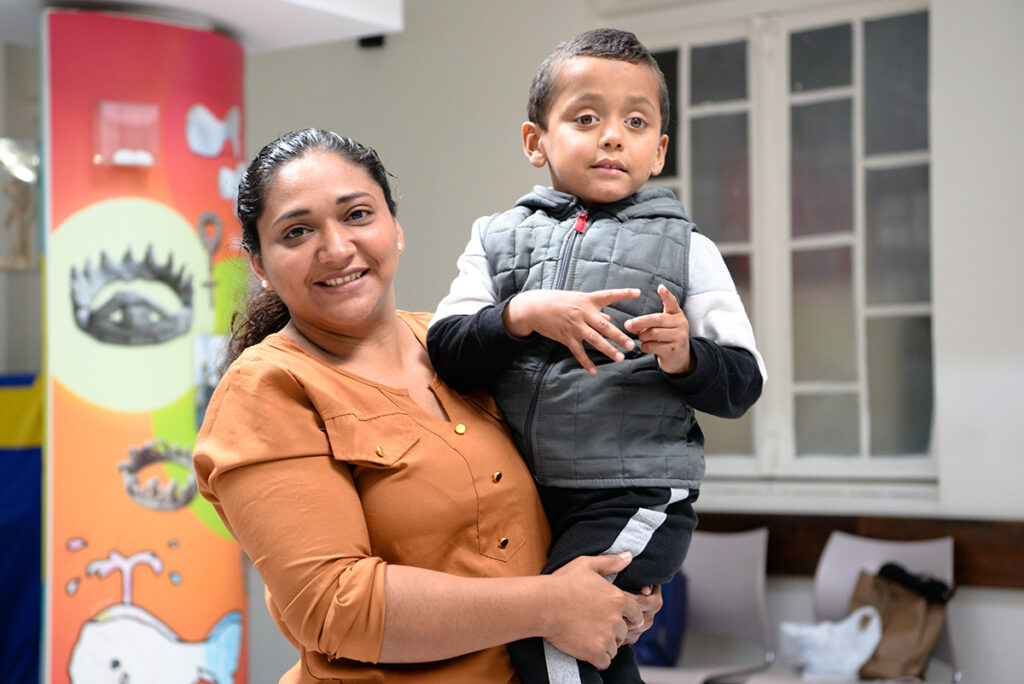
Enzo’s transplant is one of the 303 procedures performed during these 10 years of the BMT Service at the Pequeno Príncipe. “During this period, we have become one of the largest pediatric transplant centers in Latin America, especially in the area of allogenic transplants (when the transplanted cells come from another donor),” highlights the doctor who implanted the service, Eurípides Ferreira.
“When Dr. Eurípides started to dream and design an oncology service, still in the early 1960s, he was a visionary. He was always ahead of his time, with a great capacity to set objectives and goals, and accomplish them. With a dedicated team, we have made a history of evolution of protection and care in health assistance, with technical scientific excellence, and humanized care, which culminated with the implantation of the Bone Marrow Transplantation Service,” says the executive director of the Pequeno Príncipe, Ety Cristina Forte Carneiro.
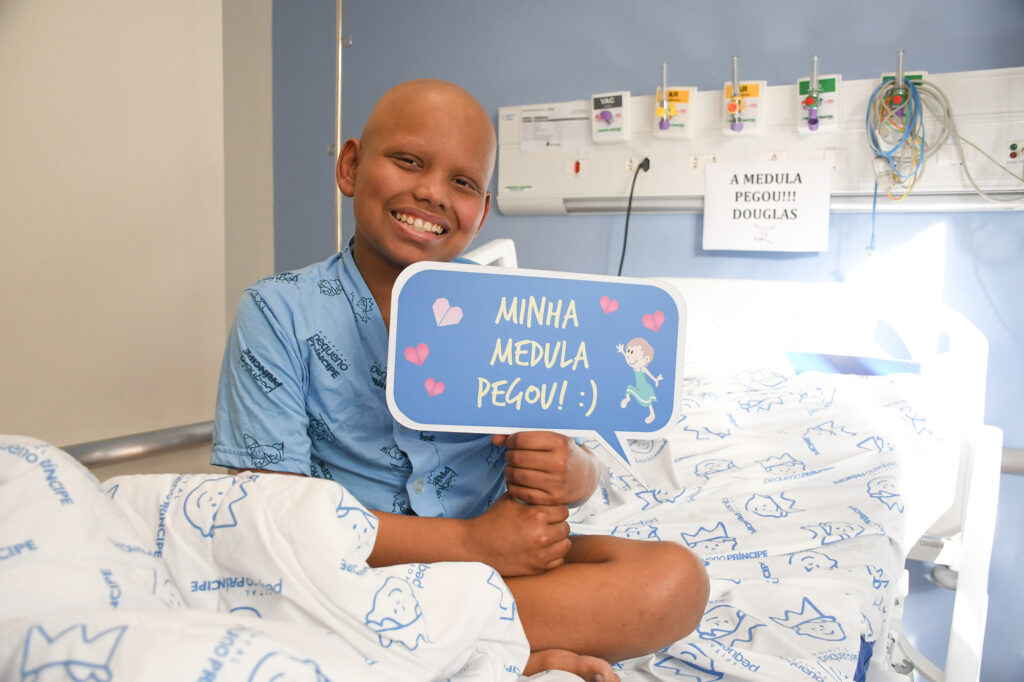
Challenges
Finding a compatible donor is one of the greatest challenges in performing a BMT. According to the service’s chief physician, Carmem Maria Sales Bonfim, as the Brazilian population is highly mixed, the chances of finding a 100% compatible donor in the family is only 25%. “At the Pequeno Príncipe, we have a person exclusively dedicated to this search. This coordinator can quickly identify the chances that a certain patient has to find a donor in the national or international banks. If this chance is small or the donor’s availability is not immediate, we have the experience to proceed with other types of donors such as, for example, haploidentical donors (when the compatibility is not 100%) identified within the family itself,” explains the doctor.
Rare diseases
Two other major differentials, according to the doctor, are the care of young children and patients with rare diseases. This was the case of little Henry. The boy was born with the same rare disease as his brother and, since there were chances of him having the same diagnosis, his mother, Kelly Akemi Bueno, was monitored during the entire pregnancy. The family was integrated into a research project at the Pelé Pequeno Príncipe Research Institute, which investigates rare diseases and is coordinated by doctor and researcher Carolina Prando. With this, the boy’s diagnosis was closed on his first day of life and he immediately began to receive the necessary care.
When he was two months old, Henry underwent a bone marrow transplant and is having the opportunity to grow and develop in a healthy way. “My oldest son also had a BMT at age 3, but because his diagnosis was late, he was left with many sequelae. The early diagnosis, which was possible through the research, and the excellence of the Bone Marrow Transplantation Service’s team, made all the difference in my youngest son’s life,” says the mother. Of all transplants performed in these 10 years, 26% were in children under 3 years old.
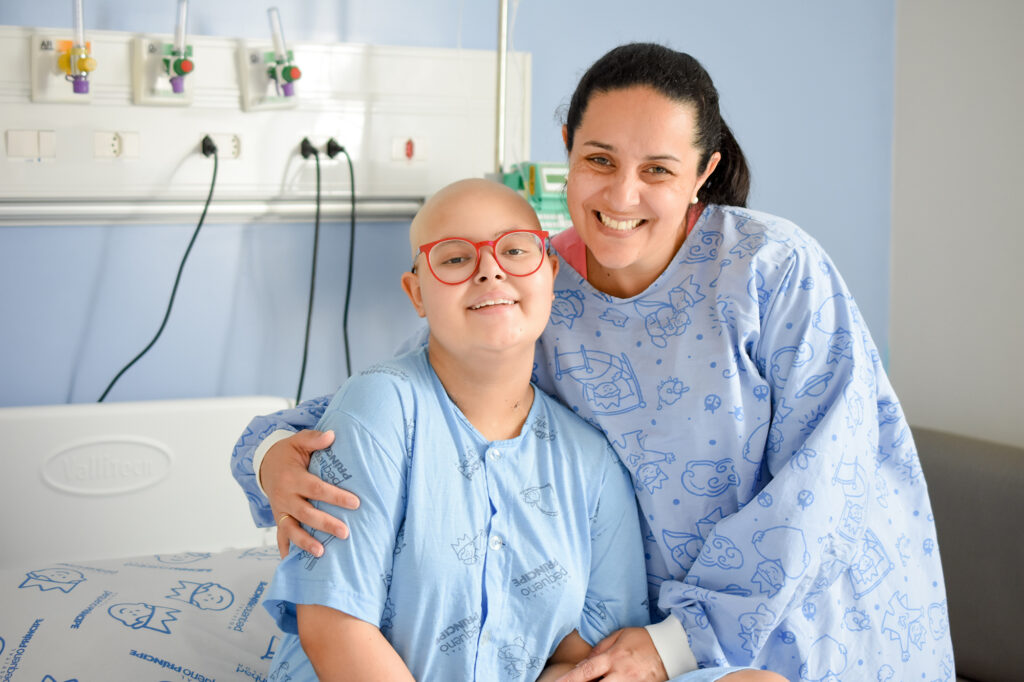
Multidisciplinary team
The fact that Pequeno Príncipe is a hospital that offers 32 specialties and counts on multidisciplinary teams is also determinant for the success of the BMT Service of the Hospital. “The service is provided by doctors trained in pediatric transplantation, who count on the daily support of professionals from other specialties, such as infectologists, intensivists, nephrologists, cardiologists, neurologists, endocrinologists, dermatologists, and hemotherapist. The multidisciplinary team is completed with psychologists, nutritionists, social workers, physical therapists, dentists, and pharmacists. The service also works in partnership with the intensive care units of the Pequeno Príncipe, the Genomic Laboratory and the Research Institute, for instance. This teamwork guarantees a service of excellence and makes all the difference in the treatment of the patients and in the results of the transplants,” says the doctor.
Future plans
Implanted in April 2011, initially with three beds, the Pequeno Príncipe Bone Marrow Transplantation Service was expanded in 2016, to include ten beds. Now, the goal is to inaugurate two more beds. “With this new expansion, we believe we will be able to transplant ten more patients per year,” plans Carmen. In 2020, even with the coronavirus pandemic (COVID-19), the service performed 61 transplants, which is equivalent to 12% of the total pediatric bone marrow transplants performed in Brazil.
More
Pelé Pequeno Príncipe Research Institute reaches 15 years old
The institution searches for new treatments and methods of diagnosis for complex diseases to contribute to the reduction of infant-juvenile mortality
The Pequeno Príncipe Gala exceeds the fundraising goal
There were approximately US$ 300,000 raised in 2020, invested in health assistance and research activities which transform lives


